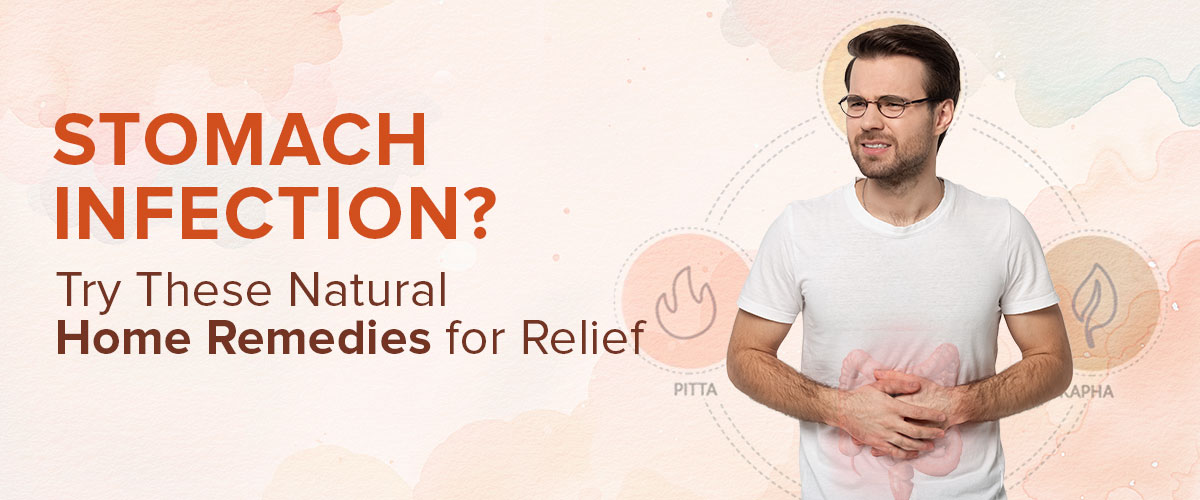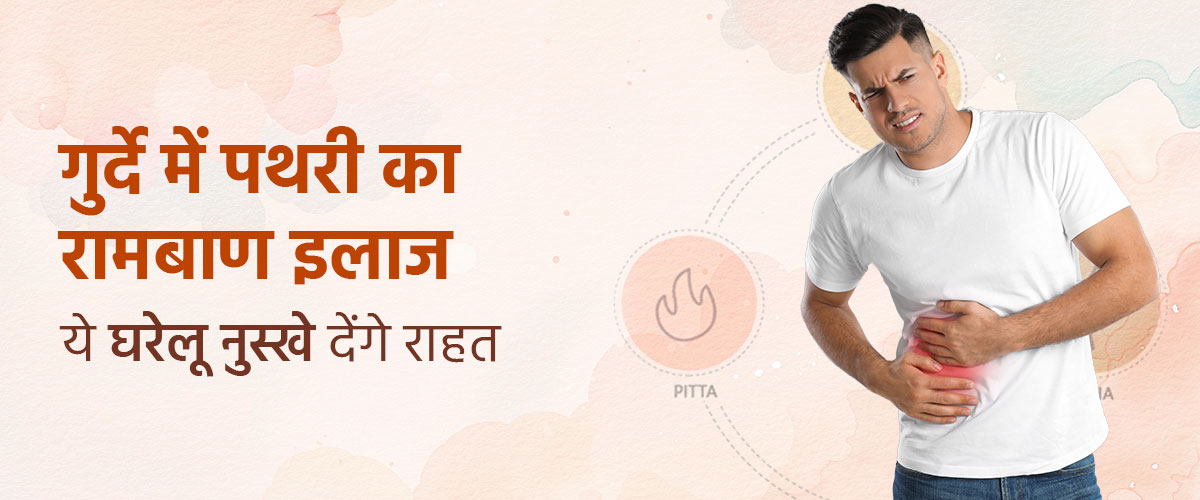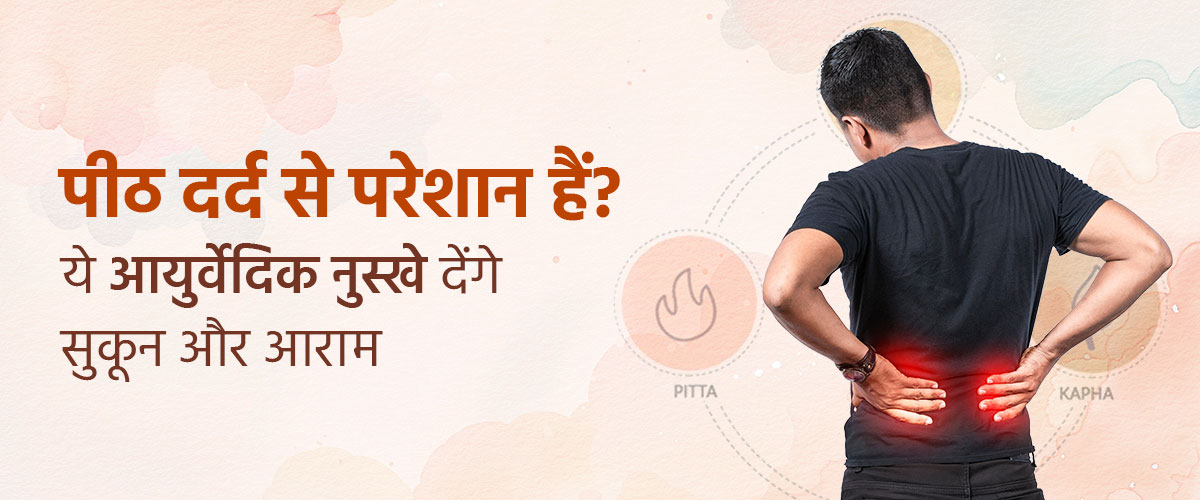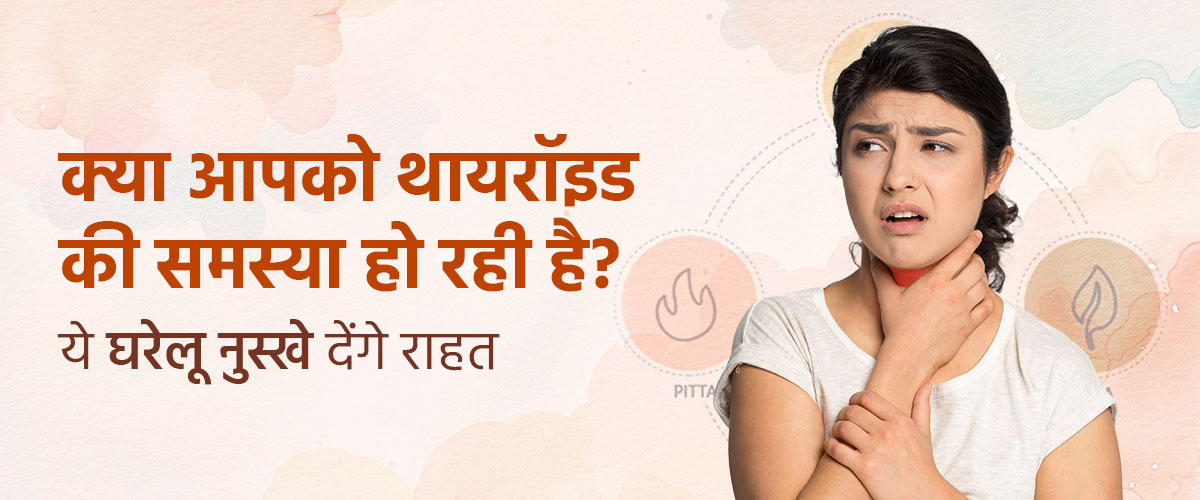Home Remedies for Stomach Infection

Stomach infections are a common health issue with symptoms that could be deeply debilitating. These infections result in inflammation in the stomach and intestines, causing nausea, abdominal pain, and diarrhoea.
They are common but usually not life-threatening, so learning to control the symptoms of stomach infection at home can improve comfort and reduce recovery time. Using effective home remedies and making specific lifestyle modifications can help ease the symptoms and prevent stomach infections from occurring again.
What are Stomach Infections?
Stomach infections (medically called “gastroenteritis”) refer to the inflammation of the gastrointestinal tract, including the stomach and the intestines. Some of the common symptoms of stomach infections include diarrhoea, nausea, abdominal cramping, and occasional fever.
However, it is important to note that the severity as well as duration of this condition might differ from person to person. Some people have minor symptoms which resolve within a day while others might have serious forms that last several days. Stomach infections are not particular to any gender and may affect individuals of any age. Knowing the causes and treatment options helps to manage the symptoms of infection and prevent its recurrence.
What is a Stomach Infection?
Stomach infections can be caused by various factors, including viruses, bacteria, and parasites. Understanding these causes helps in taking preventive measures to reduce the risk of infection.
Viral Causes: The most common stomach infections are caused by viruses, with norovirus and rotavirus being the most common among children and elderly people. These viruses are extremely contagious and are generally spread by consuming contaminated water or food. The infection affects the functioning of the normal gastrointestinal tract.
Bacterial Causes: Bacterial infections are another common cause of stomach infection (Salmonella, E. coli, and Campylobacter). They're usually ingested through contaminated food like meat, eggs, and dairy products that are undercooked or improperly handled. The bacteria create harmful toxins that result in irritation in the stomach and intestinal walls and cause inflammation.
Parasitic Causes: Although less common, parasites (such as Giardia) can also lead to stomach infections. Stomach infections are caused by parasites in individuals who consume contaminated water or are in close contact with infected individuals. Parasitic infections usually last longer.
Home Remedies and Tips for Stomach Infections
Stomach infections can be unbearable, but there are several home remedies to ease symptoms and speed up the healing process. The following natural treatments can provide relief from discomfort and help in recovery.
Ginger: Ginger lowers inflammation and calms the stomach lining. You can take ginger as ginger tea, fresh ginger root, or ginger pills. For a soothing tea, steep sliced or grated fresh ginger in boiling water for a minute and drink it hot.
Peppermint Tea: The menthol in peppermint relaxes stomach muscles and prevents spasms. Drinking peppermint tea soothes the digestive tract and eases pain. It can be drunk throughout the day, but drinking it warm brings the best results.
Apple Cider Vinegar: Even though acidic in nature, when diluted, it provides an alkalising effect after digestion and soothes an upset stomach. Mix 1 tablespoon of apple cider vinegar into 1 cup of warm water and drink it before meals. Don’t drink it on an empty stomach to avoid acid reflux.
Chamomile Tea: Chamomile calms both the mind and stomach. It eases abdominal discomfort, reduces irritation, tightens muscles of the upper digestive system, and provides relief from nausea and vomiting symptoms. Drinking 1 glass of warm chamomile tea soothes the stomach. It can be consumed several times a day.
Rice Water: Cooking rice in excess water and drinking the cloudy water after the rice cooks can be soothing for an inflamed stomach. Rice water has starch and coats the lining of the stomach, which in turn reduces inflammation and soothes irritation.
Fennel Seeds: Fennel has antispasmodic qualities. It aids in the treatment of bloating and indigestion. Chewing on a spoonful of fennel seeds or drinking fennel tea can help expel gas and ease stomach cramping.
Mint Leaves: Mint is similar to peppermint in terms of its digestive benefits. You can chew mint leaves or brew them into tea. Mint relaxes digestive tract muscles and improves the flow of bile. It also helps in improving the process of digestion.
Clear Broths: Clear broths are nourishing and hydrating. Broths (especially those made from chicken or vegetables) provide essential nutrients and help maintain electrolyte balance. Sipping warm broth can help keep energy levels up during recovery.
Lemon Water: Lemon water can neutralise stomach acids and provide vitamin C. It can help with nausea and refresh the palate. Squeeze 1/2 a lemon into a glass of warm water and drink it slowly.
Warm Compress: A warm compress or heating pad on the abdomen can improve blood circulation and ease abdominal bloating or cramps. The heat relaxes and soothes muscles & lessens discomfort and pain.
Lifestyle Recommendations
Certain lifestyle practices can help you avoid stomach infections or treat symptoms once they occur. These habits aim to improve hygiene and reduce exposure to common pathogens.
Wash Hands Regularly: Good hygiene practices help prevent the spread of pathogenic agents, which result in stomach infections. Wash your hands with water and soap before consuming or after you have used the restroom.
Avoid Close Contact: When you or someone around you is sick, minimise close contact to prevent the spread of infection.
Disinfect Surfaces: Frequently clean and disinfect surfaces in your house, particularly the kitchen and bathroom, which can harbour bacteria and viruses
Cook Food Thoroughly: Appropriate food handling and storage can avoid stomach infections, as a lot of pathogens are carried by contaminated foods.
Store Food Properly: Refrigerate perishable food items promptly, and don't leave cooked foods at room temperature for over two hours.
Separate Raw and Cooked Foods: Separate cutting boards and plates for raw and cooked food to prevent cross-contamination.
Wash Produce: Wash fruits and vegetables under running water before consuming or cooking them.
Diet for Stomach Infection
What you eat could influence the severity and duration of stomach infection. Some foods ease symptoms and others worsen them. You can follow the below list:
Easily Digestible Foods: Food items containing carbohydrates like white rice, oats, bananas, etc are light on the stomach.
Fluids: Drink lots of fluids (like water, organic teas, soups, etc.) to replace fluids lost to vomiting and diarrhoea.
Probiotics: Renew intestinal bacteria with probiotic foods like kefir and yoghurt.
Dairy Products: Except for probiotic-rich yoghurts, most dairy products are hard to digest during a stomach infection because of temporary lactose intolerance.
Fatty and Spicy Foods: These can exacerbate stomach irritation and cause indigestion, so it’s best to avoid them.
High-Fibre Foods: Fibrous foods (beans, nuts, and whole grains) can aggravate symptoms of diarrhoea and should be avoided during stomach infection.



 Prev
Prev































































































































